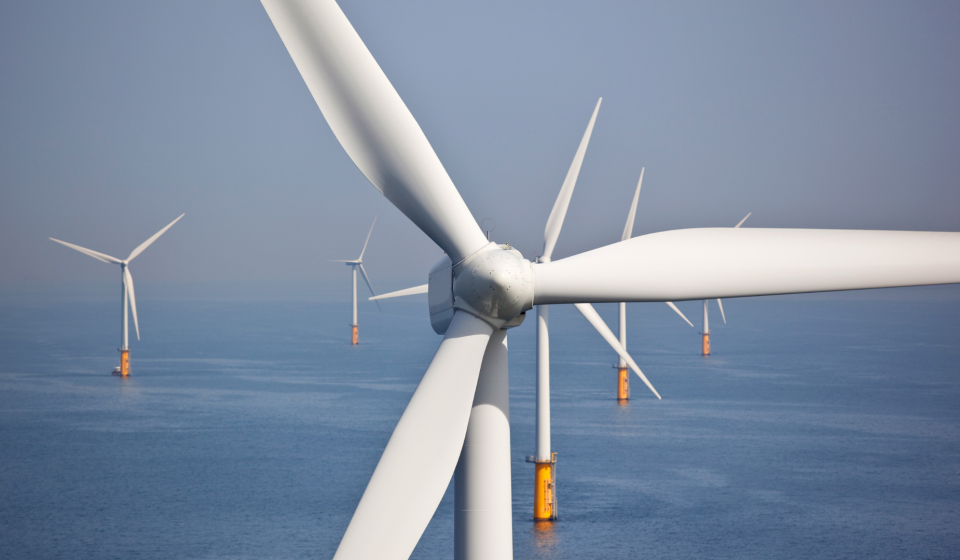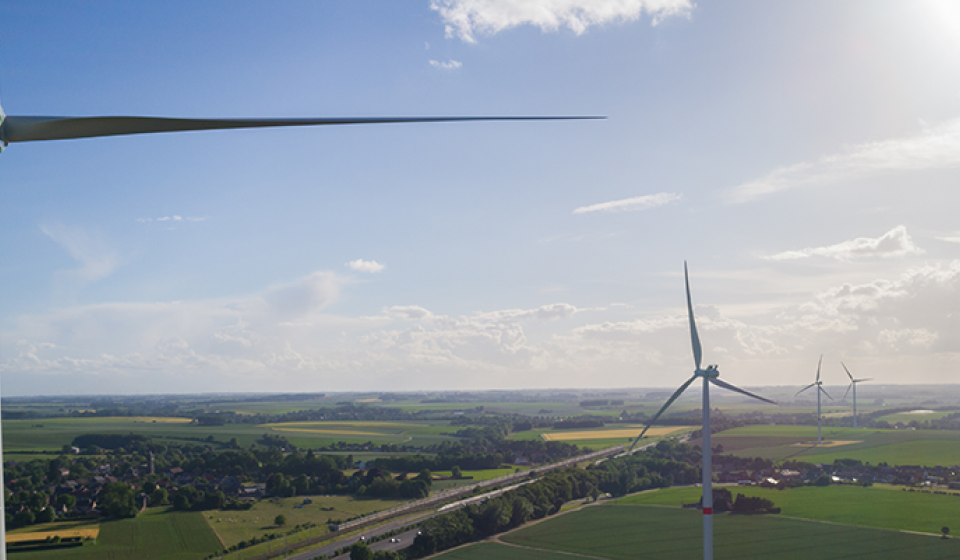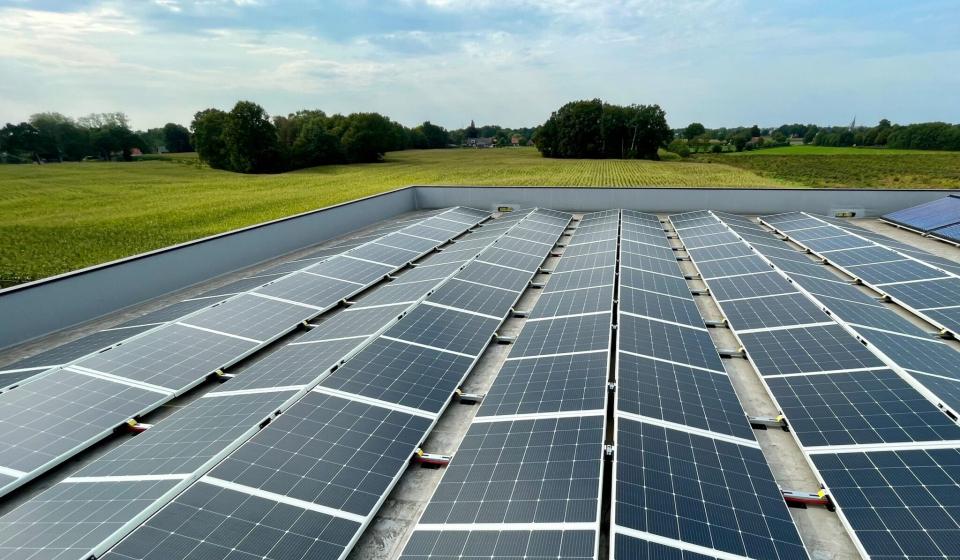Sabic inaugurates world's largest circular solar installation of its kind in Genk
In the presence of the mayor of Genk Wim Dries, SABIC today officially inaugurated the world's largest solar installation using fully recyclable materials at his site in Genk. The innovative solar panels from Dutch manufacturer Solarge are 100% recyclable and significantly lighter than traditional solar panels. ENGIE was responsible of the installation and financing.
SABIC, ENGIE and Solarge are celebrating a world first in Genk today, with the inauguration of an innovative solar installation. This project will see ENGIE, one of the leading utility companies in Belgium, invest to construct a solar PV facility on SABIC’ production location.
The installation consists of 4,600 solar panels. These were developed by SABIC and Solarge, and manufactured by Solarge, the startup Dutch manufacturer that opened its first plant in the Netherlands last year. A unique feature of these solar panels is that they are composed of fully separable layers, so all components can be disassembled and reused. Thanks to the use of innovative polymers - produced by SABIC in Genk - these solar panels also contain no glass and very little aluminum, making them half as light and reducing the carbon footprint by 25% compared to traditional solar panels.
The solar installation was designed, financed, and installed by ENGIE Sun4Business, the Belgian subsidiary of ENGIE that helps companies reduce their CO2 emissions with solar energy. It will produce about 2,000 megawatts of renewable electricity annually, equivalent to the average annual consumption of nearly 700 families. The electricity generated will be consumed almost entirely by the plant and will help SABIC reduce its CO2 emissions by 800 tons per year for at least 25 years.
Vincent Verbeke, CEO of ENGIE Belgium, said, “ENGIE constantly monitors the latest developments in the field of renewable energy, because we want to be able to offer our customers the best available technologies for reducing their CO2 emissions. Our R&D centre Laborelec identified these circular, lightweight solar panels as best in class. They offer a smart solution for roofs with limited load-bearing capacity, typically at large factory buildings. ENGIE is already poised to further roll out this technology to customers across Belgium, as part of working toward our goal of having 300 MW of solar installations in service at businesses by 2030.”
Jan Vesseur, CEO Solarge said, “We are showing that European manufacturers are making a difference by betting on innovation and sustainability. Solarge's ambition is to accelerate the energy transition worldwide with sustainable, PFAS-free solar panels that are also recyclable at the end of their useful life. To that end, we are working to expand our capacity in the Netherlands and the United States. Our focus market is the C&I market, specifically weight-restricted roofs.
With this we unlock a huge additional potential of roofs for the use of solar panels by owners and users. In addition, we are also helping to relieve the energy grid that is overloaded in many places.”
Lada Kurelec, General Manager Polymers T&I at SABIC: “This achievement is a great example of bringing together SABIC’s differentiated material development expertise together in a value chain collaboration with other leaders in their fields. This project embodies two key sustainability drivers for SABIC; innovating for material circularity together with driving toward carbon neutrality. This also reaffirms SABIC’s commitment to drive the energy transition toward renewable power through both material applications and reducing the manufacturing carbon footprint.”
The installation in a few figures
Number of solar panels: 4599
Surface area: 13 600 m²
Weight: Less than 7 kg per m²
Total peak power: 2.4 MW
Electricity production: 2000 MWh per year
CO2 savings: -800 tons CO2eq per year

Articles and press releases

Borealis Transforms Company Parking Lots into Solar Farms in Collaboration with ENGIE

ENGIE is part of a strategic consortium to pursue the offshore wind Princess Elisabeth concessions in Belgium

Google and ENGIE strengthen their partnership through Power Purchase Agreements in Belgium
